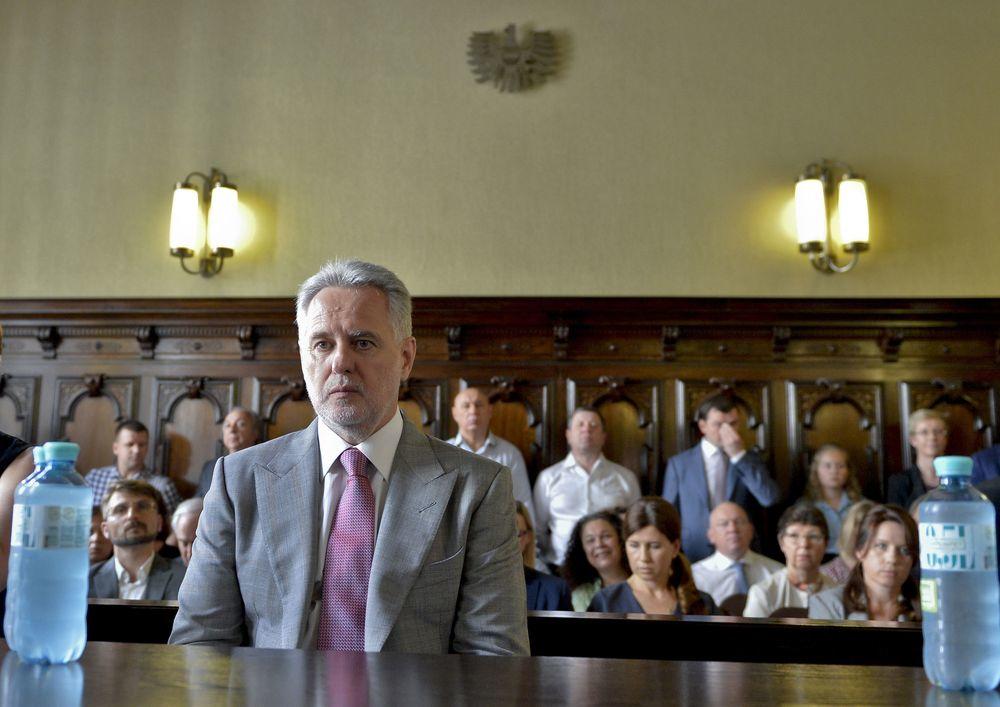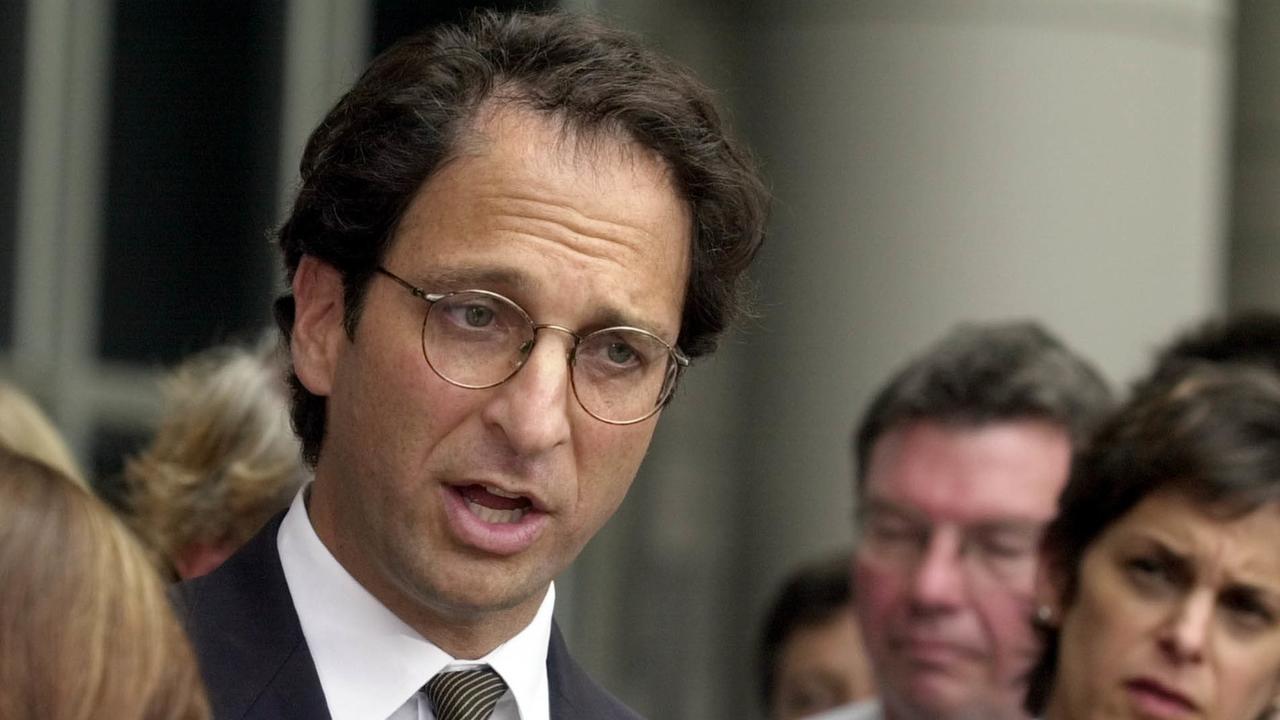As the FBI investigated whether Donald Trump was working with Russia, top bureau attorney Andrew Weissmann secretly approached a Ukrainian Oligarch’s US attorneys seeking dirt on President Trump, according to The Hill‘s John Solomon.
In exchange, the FBI was willing to drop an ongoing case against the Ukrainian – Dmitry Firtash, who was hit with 2014 corruption charges in Chicago alleging that he engaged in corruption and bribery in India linked to a US aerospace deal.
According to a defense memo recounting Weissmann’s contacts, the prosecutor claimed the Mueller team could “resolve the Firtash case” in Chicago and neither the DOJ nor the Chicago U.S. Attorney’s Office “could interfere with or prevent a solution,” including withdrawing all charges. “The complete dropping of the proceedings … was doubtless on the table,” according to the defense memo. –The Hill

It was a desperate move for the FBI – which was grappling with a lack of evidence against Trump as the Steele dossier was turning out to be an embarrassing dud (“There’s no big there there,” lead FBI agent Pete Strzok texted a few days before Weissmann’s overture, writes Solomon).
At the same time, the DOJ’s evidence against Firtash in the 2014 case was also falling apart.
Two central witnesses were in the process of recanting testimony, and a document the FBI portrayed as bribery evidence inside Firtash’s company was exposed as a hypothetical slide from an American consultant’s PowerPoint presentation, according to court records I reviewed. –The Hill
In short, the DOJ had two high profile cases which were unraveling as Weissmann reached out.
Two weeks before the offer was made, Robert Mueller was appointed special counsel – tasked with continuing and expanding upon the FBI’s substantial investigative efforts (including espionage) against Donald Trump and anyone in his orbit.
Firtash’s legal team thought Weissman was probably overstepping his authority, as the special counsel’s office was still subject to DOJ oversight. They were also taken aback after Weissmann went to extraordinary lengths to enlist the Ukrainian by sharing prosecutorial theories the FBI was forming about Trump and his team.
Prosecutors in plea deals typically ask a defendant for a written proffer of what they can provide in testimony and identify the general topics that might interest them. But Weissmann appeared to go much further in a July 7, 2017, meeting with Firtash’s American lawyers and FBI agents, sharing certain private theories of the nascent special counsel’s investigation into Trump, his former campaign chairman Paul Manafort and Russia, according to defense memos.
For example, Firtash’s legal team wrote that Weissmann told them he believed a company called Bayrock, tied to former FBI informant Felix Sater, had “made substantial investments with Donald Trump’s companies” and that prosecutors were looking for dirt on Trump son-in-law Jared Kushner.
Weissmann told the Firtash team “he believes that Manafort and his people substantially coordinated their activities with Russians in order to win their work in Ukraine,” according to the defense memos. And the Mueller deputy said he “believed” a Ukrainian group tied to Manafort “was merely a front for illegal criminal activities in Ukraine,” and suggested a “Russian secret service authority” may have been involved in influencing the 2016 U.S. election, the defense memos show. –The Hill
Despite being ‘holed up’ in Austria for five years while fighting extradition charges to the US, Firtash turned down Weissmann’s plea overtures. His lawyers told John Solomon that he rejected the deal because he didn’t have credible information or evidence against Trump, Manafort, or anyone else Weissmann laid out in his theories.
In sealed Austrian court filings earlier this month, Firtash’s attorneys compared the DOJ’s 13-year investigation to medieval inquisitions, citing Weissman’s approach as politically motivated – and noting the “possible cessation of separate criminal proceedings against the applicant if he were prepared to exchange sufficiently incriminating statements for wide-ranging comprehensively political subject areas which included the U.S. President himself as well as the Russian President Vladimir Putin.”
Hilariously, the DOJ won a ruling in Austria to secure Firtash’s extradition to Chicago – Austrian officials reversed course after his legal team filed new evidence that included the Weissmann overture, according to the report.
That new court filing asserts that two key witnesses, cited by the DOJ in its extradition request as affirming the bribery allegations against Firtash, since have recanted, claiming the FBI grossly misquoted them and pressured them to sign their statements. One witness claims his 2012 statement to the FBI was “prewritten by the U.S. authorities” and contains “relevant inaccuracies in substance,” including that he never used the terms “bribery or bribe payments” as DOJ claimed, according to the Austrian court filing.
That witness also claimed he only signed the 2012 statement because the FBI “exercised undue pressure on him,” including threats to seize his passport and keep him from returning home to India, the memo alleges. That witness recanted his statements the same summer as Weissmann’s overture to Firtash’s team.
Firtash’s lawyers also offered the Austrian court evidence of alleged prosecutorial wrongdoing. –The Hill
Embarrassingly for the DOJ, a key document they submitted to Austria in support of Firtash’s extradition allegedly from his corporate files and purportedly showing evidence that he sanctioned a bribery scheme in India was actually a slide from a powerpoint presentation created by the McKinsey consulting firm as part of a hypothetical presentation on ethics for the Boeing Corp.
Firtash’s U.S. legal team told me it alerted Weissmann to DOJ’s false portrayal of the McKinsey document in 2017, but he downplayed the concerns and refused to alert the Austrian court. The document was never withdrawn as evidence, even after the New York Times published a story last December questioning its validity. –The Hill
“Submitting a false and misleading document to a foreign sovereign and its courts for an extradition decision is not only unethical but also flouts the comity of trust necessary for that process where judicial systems rely only on documents to make that decision,” Firtash’s US legal team told Solomon. “DOJ’s refusal to rescind the document after being specifically told it is false and misleading is an egregious violation of U.S. and international law.“
via ZeroHedge News https://ift.tt/2Yq9lHy Tyler Durden
